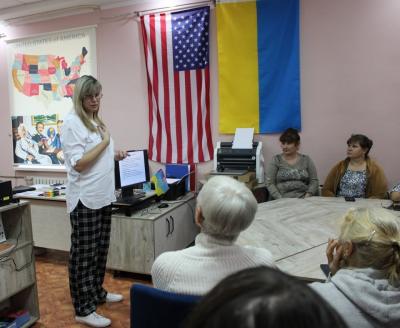Toni Morrison
Toni Morrison
African American Feminist Writer 1931 –
As a book editor for the Random House publishing company during the 1960s and 1970s, Toni Morrison helped publishing the works of influential African American writers and celebrities, including activist Angela Davis and boxer Muhammad Ali. In its own right, this work represented an important contribution to American culture. But the novels Morrison composed during this period, in her spare time and during her commute to an and from her job, made her one of the most influential American writers of the late twentieth century. Born Chloe Anthony Wofford on February 18, 1931, Morrison grew up in northern Ohio in an area rich with Civil War history and the memory of the Underground Railroad. She would prominently feature this region in her later writing. Morrison was a talented student, and despite the limitations imposed upon African Americans and women in the era before Civil Rights, She flourished in the academic world. After the graduating from Howard University in 1953, she received her master’s degree in English from Cornell University in 1955, taught English at Texas Southern University, and returned to Howard as a teacher in 1957.
In 1964, after divorcing her husband, architect Harold Morrison, She moved to Syracuse, New York, where she supported her two children as a textbook editor for Random House. To unwind after her workday, she began writing stories of her own. She also edited and expanded a story she had written several years earlier, a tale about a black girl who prays that God will give her blue eyes. Soon this short story grew into a full-length novel. And by 1967, when she was promoted to senior editor in Random House’s Manhattan offices (she was largely responsible for the African American authors on the company’s roster), her manuscript was ready for publication.
The Bluest Eyes was published in 1970, and Morrison was immediately celebrated as a unique voice in American literature. In her first novel, she exhibited an impressive insight into her characters’ psychologies as a well as a unique social and political perspective, combining the lessons of the lessons of the Civil Rights movement with those of the re-energized feminist movement of the late 1960s and 1970s. With her next novels, Sula (1973) and Song of Solomon (1977), Morrison expanded the scope of her work and developed a dense, rhythmic style that drew on the modernist novels of William Faulkner as well as on the works of Harlem Renaissance writers such as Langston Hughes and Zora Neale Hurston. Critics consistenly praised her work, and readers responded in kind. By the mid-1980s she was an acclaimed lecturer, a tenured professor at Princeton University, and a public figure respected as both an intellectual and a member of American popular culture.
Following the award-winning Song of Solomon, a novel about northern characters fleeing their southern pasts, Morrison published Tar Baby (1981) and completed her 1987 masterpiece, Beloved. Based on an actual incident that took place in 1851, when an escaped slave murdered her children instead of watching them return to slavery, Beloved is, like Song of Solomon, the story of community haunted by its past. In Sethe, the guilt-ridden former slave; her angry daughter, Denver; and Beloved, the ghost of Sethe’s murdered baby, Morrison presents a family forced to reckon with the violent legacy of slavery. In particular, she focused on the harsh effects of slavery on African American women and the ways in which those women unite to survive their predicament. Written in a poetic prose that emphasizes the characters’ psychological steuggles, Beloved became an instant best-seller as well as a critical favorite, a rare combination in contemporary fiction. It earned the 1988 Pulitzer Prize for fiction and continues to be a defining text in American culture and a featured selection of college literature courses. In 1988 it became a major motion picture starring Oprah Winfrey.
In her subsequent novels, Jazz (1992) and Paradise (1998), Morrison has continued her lifelong exploration of African American culture and women’s issues. In addition she has written dozens of essays on both literature and contemporary politics, some of which have been colleted in Playing in the Dark: Whiteness and the Literary Imagination (1992), and has become a prominent commentator on American culture.
For her lyrical and incisive body of work, she won the 1993 Nobel Prize in literature. Having overcome the limits of prejudice and bigotry, Morrison became the eight woman, and first black woman, to win the most prestigious award in world letters.
More detailed information can be found in the "Extraordinary American Writers" John Tessitore, and issued by The Scholastic Inc. in the USA.Information should be used just for educational purposes.










